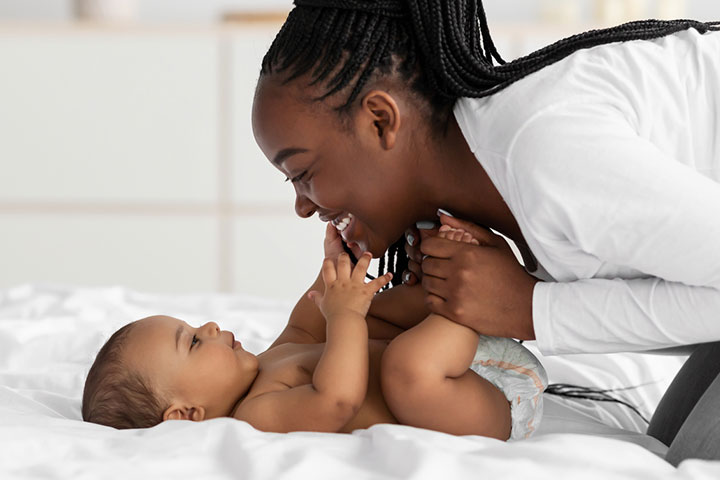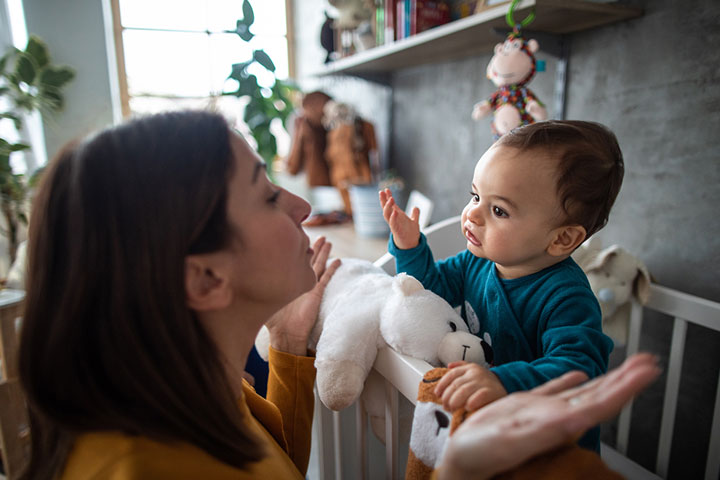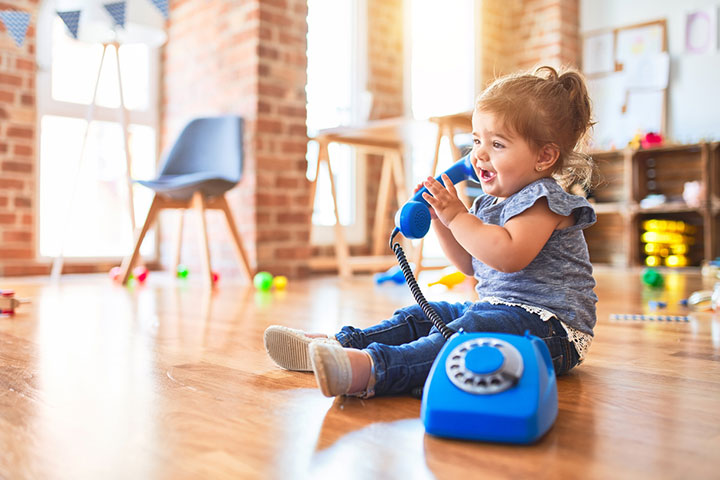
Image: iStock
There’s nothing quite like hearing your baby talk for the first time. It lights up the faces of parents and they are elated when their baby finally calls them mama or dada but your baby goes through a long journey to get to this point. Your little one has to develop their speech skills in phases, month after month. So if you want a timeline of what your baby should be able to say or how their speech progresses during their formative years, then this is the article for you. Keep on reading! Here is a baby talking timeline to keep track of your baby’s speech development.
1. Birth To 6 Months
Your baby has been attentively listening to you since their very first day. Babies often begin recognizing their mother’s voice while still in the womb, helping them form associations between sounds and their sources. Once born, they swiftly discern distinctive family sounds, like the family dog’s bark or the deeper tones of dad’s voice compared to mom’s. Initially, a baby’s primary mode of communication is crying, expressing needs like hunger, discomfort, sleepiness, or distress.
However, as they grow, they start to mimic sounds they frequently hear. They begin using their tongue, lips, and palate to produce gurgles and elongated vowel sounds such as “oo,” “aa,” and “ee,” which serve as precursors to their thrilling first words. Remarkably, even as young as 4 weeks old, babies can differentiate between similar syllables like “ma” and “na.” By around 2 months, they can even start connecting specific sounds with corresponding lip movements (1). It’s truly remarkable!
2. 4 Months To 6 Months
This is an enjoyable stage for both babies and their parents, as your baby’s developing sight coincides with the emergence of babbling. During this period, you’ll hear them produce a variety of sounds, including consonant sounds like “g” and “k” at the back of the tongue, as well as intriguing lip sounds such as “m,” “w,” “p,” and “b.” Additionally, your baby will begin focusing on familiar words they frequently hear, like their own name, or the words “mommy” and “daddy,” using them as cues to segment a sentence.
However, it’s important to note that around the 4-month milestone, your baby will only recognize their name as a significant word, akin to words like “Hi” and “Bye.” At this point, it’s merely something familiar to them. It isn’t until they reach 6 months that they grasp that their name actually refers to them (2).
3. 7 To 12 Months
This is the phase when your child’s babbling begins to evolve into actual words. They will intentionally repeat sounds, finding it fascinating, and often choose sounds that are easy to imitate, like “gaga.” Around 9 months of age, they begin to grasp the purpose of gestures, starting to point and use grunts to express their desires. By about 10 months, they gain better control and begin combining sounds, even inventing some of their own words.
Experts suggest that babies typically utter their first word around the 12-month mark (3). These initial words may include common greetings such as “hello,” “hi,” and “bye,” or they might focus on concrete terms like “mama” and “dada.” Additionally, they can begin recognizing and naming family pets like “doggy” and “kitty,” as well as identifying preferred foods such as “cookies,” “milk,” or “juice.” During this stage, your baby is gradually comprehending several familiar words, including names and everyday objects like “bottle” or “crib.” They also start tuning into intonation, understanding that a sharp tone indicates “no” or “stop” (4).
4. 13 To 18 Months
Once your baby utters their first word, they’ll eagerly attempt to add more to their vocabulary. Initially, their word bank grows slowly, with just a few words per month. However, they quickly catch on, typically showing a preference for nouns before gradually incorporating verbs and adjectives into their repertoire. What began as a simple “cookie?” may soon evolve into polite requests like “May I have a cookie?” They’ll also discover the joy of using the word “no,” much to their parents’ chagrin.
As their language skills develop, they’ll start comprehending and following one-step instructions, such as “put down the ball” or “Don’t throw the food on the ground.”
Listening to your baby start to speak and express themselves can be a very rewarding and fascinating thing for parents to be a part of. This is when their personality starts to come through and you get to know your child. Now that you know the long road your baby takes to these important milestones, you’ll learn to look out for them!
















